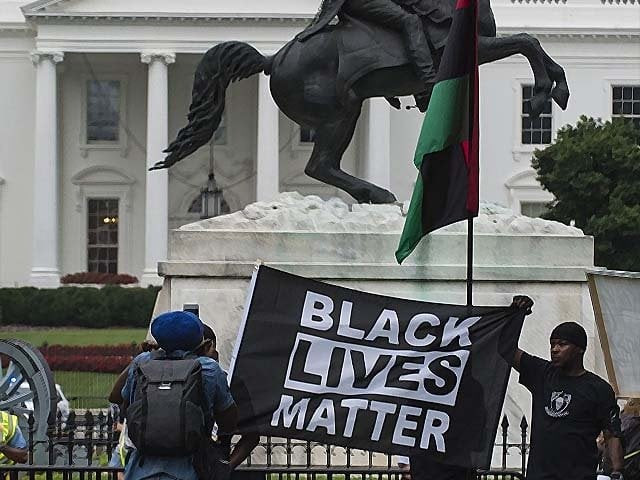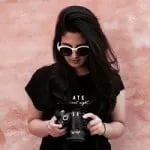After the murder of George Floyd in broad daylight, thousands upon thousands of protestors have taken to the streets to demand justice not only for Floyd but for Ahmaud Arbery, Breonna Taylor and hundreds of others that have been killed before them. Much of the media coverage has been disappointing and vile. News sites have given space for protestors to be vilified, they have been called thugs and looters and their efforts taken away from by misconstrued commentary and sabotage. At protests in the USA, many of which were peaceful, police arrived and terrorised the protesters with tear gas, pepper spray and rubber bullets. And on the night of June 1, President Trump essentially declared war on citizens.
Still, millions of people continue to post on social media to mobilise people to petition, march, donate and speak up. Protests, which began in Minneapolis on May 25, have spread to hundreds of cities across America and cities across the world, in light of this global support, I saw one Instagram post calling this the largest civil rights movement. I’ve seen and heard of South Asians questioning why so many South Asians are showing their solidarity to Black Lives Matter when there is so much injustice happening in their motherlands that they don’t speak up about. I cannot get behind this kind of sentiment, and strongly urge anyone who feels this way to think twice before posting.
As South Asians, we need to do better, and we need to do more. I understand that the South Asian community has its battles, but they are not the same battles that BIPOC face. There is so much injustice unfolding daily in Pakistan alone, and it’s never been more clear to me that I don’t speak out enough about those horrific issues either. Over the last few years, I’ve become passive about global issues at large, I haven’t done enough with my privilege and have let myself down. That doesn’t mean I should keep my mouth shut now about this issue because of everything I haven’t spoken up about before. Don’t project your guilt of not doing something about other issues on a movement and community that heavily need support right now.
My friends that are BIPOC and their entire community are in pain, they are marching the streets, and I owe it to them to speak up. Even if you don’t have BIPOC friends, you still must take some action. Instead, I’ve seen some people get emotional that our issues don’t get this much attention, I believe misdirecting this anger to a movement that genuinely needs South Asian support and solidarity right now does a disservice to both parties. South Asians indeed face discrimination, but even as a person of colour I will never be able to understand what a BIPOC goes through daily. I will never have to face the systemic violence and racism they do. I have never had to live with that kind of fear.
My only duty right now is to listen, to learn, to reflect, to fill in my own knowledge gaps and show up. As a fellow human being, right now, my place is firmly alongside the BIPOC community. Brought to America against their will as slaves, BIPOC have had to fight for their rights ever since. The African American movement for freedom and civil rights has paved the way for many South Asian families to immigrate to North America. BIPOC have had to fight hard and have been beaten, jailed and murdered in their struggle for many of the rights and opportunities the South Asian community across North America have today. We must support the BIPOC community instead of turning our backs on them with prejudice and silence. Solidarity and speaking out against the oppressive white supremacist regime that plagues and ruins their lives is the only choice.
At the same time, we have to address the racist discourse within our own communities. The value “light skin” holds across South Asian culture is not a simple thing to address or resolve, but it has shaped and damaged us for generations. We openly take pride in possessing fair skin and socially condemn and shun those that don’t. It’s sick and has to stop. There is so much about my culture that I love, but how we aspire to “whiteness” is ugly and goes much deeper than a bottle of Fair & Lovely. We need to address the discriminatory conversations that happen within South Asian communities. The model minority rhetoric that characterises us as a safe, law-abiding and polite ethnic group serves as a tool for an oppressive regime to further hold back BIPOC.
And finally, it’s not enough to simply participate in keyboard activism. It’s not enough to post on social media. We have to call out racist family members, friends and partners. We have to mobilise, and we have to band together as South Asians to dismantle anti-Blackness within our communities. Earlier this week in an article called “It’s Time to be Actively Anti-Racist”, my friend Sama Abdi, explains that as a Black Muslim woman she has three strikes against her and is part of three groups that constantly have to fight for a seat at the table. In this article she goes on to share how we can be better allies – there’s more than one way to speak up, and there’s more than one way to play a role in defending BIPOC rights. Abdi explains four calls to action,
“If you have the means to donate your money, do so. There are many charities and bail funds that you can support in the United States and around the world. If you have a platform, use it to amplify the voices of marginalised groups, share their stories, and their plights. Try to understand what they’re going through and help create a world that supports the needs of all humans, not just some. If you have time, use it to educate yourself and your family members about the various injustices taking place in the world today. Sign petitions, write and call your local elected officials to help effect positive change, read books, and watch movies by BIPOC and LGBTQI+ authors and screenwriters. Try to understand what it means to experience the world as a minority. If you have power and privilege, use it for good – hire and promote individuals from diverse backgrounds, use your access to help underrepresented communities get into spaces that they ordinarily wouldn’t be able to.”
It will never be okay to fall back on being “brown” and being part of communities that have their own struggles as an excuse to stay quiet. Today I speak up after a very long time. I am worried that I’ll say the wrong thing, but that’s no longer an excuse not to show up. My friend shows up for me every day, her fear the way she feels is more important than anything I might be feeling right now. I owe it to her, to the BIPOC artists I shared a space with and to their community across the world to take real action. Whether you know someone or not is irrelevant, I implore the South Asian community to consider doing the same. We all need to be better allies to everyone, and that starts today, it begins now with Black Lives Matter.



COMMENTS
Comments are moderated and generally will be posted if they are on-topic and not abusive.
For more information, please see our Comments FAQ